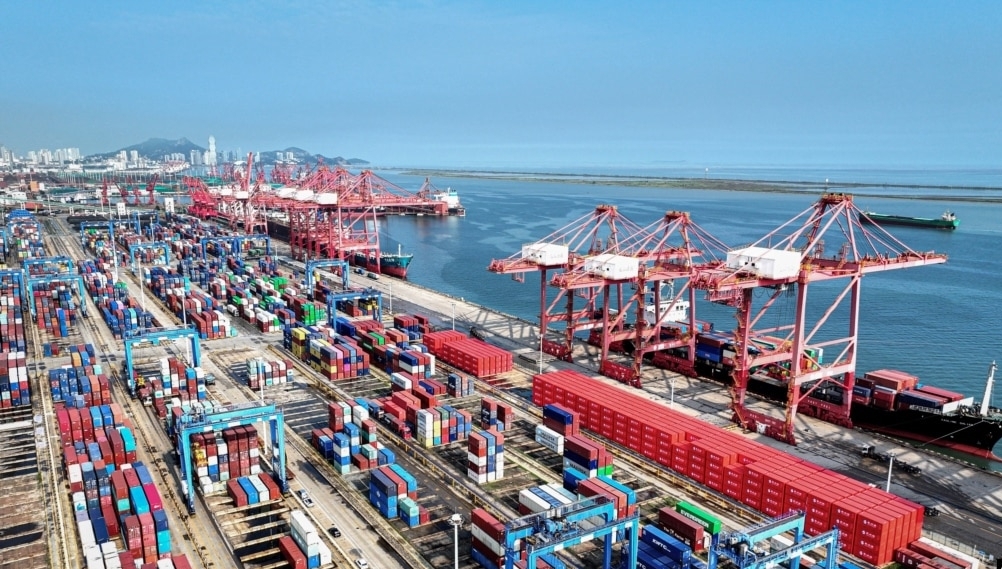
The Sino-US economic and trade relations are an important part of the overall bilateral relationship, and the status of permanent normal trade relations (PNTR) is a key cornerstone of this relationship. However, in recent years, there have been some voices in the US that advocate for the revocation of China's PNTR status, which would undoubtedly have a series of impacts on the Chinese economy. This article will analyze the potential consequences of such a potential move on the Chinese economy from multiple angles.
Firstly, it is important to clarify that the granting of PNTR is mutual and reflects the principle of equality and reciprocity among WTO members. Revoking China's PNTR status not only violates international trade rules but also undermines the stability and predictability of the global trade system. For China, this change would mean a deterioration of the external trade environment, which could have negative impacts on economic growth, employment stability, and industrial upgrading in various ways.
From the perspective of economic growth, revoking PNTR status will result in higher tariff barriers and market access restrictions for Chinese export products. This will directly increase the export costs of Chinese products and reduce their competitiveness in the international market. At the same time, due to the increase in tariffs, the willingness of US consumers to purchase Chinese products may also decline, further suppressing the growth of Chinese exports. The cumulative effects of these factors may ultimately drag down China's overall economic growth rate.
Moreover, revoking PNTR status will also have an impact on the labor market. China is one of the important bases for global manufacturing, and many export-oriented enterprises provide employment opportunities for a large number of workers. Once China's PNTR status is revoked, leading to difficulties in export, these enterprises may face the risk of operating difficulties or even bankruptcy, thereby causing large-scale unemployment problems. This not only imposes a huge economic burden on China's society but also may affect social stability and political stability.
In terms of industrial upgrading and innovative development, the cancellation of PNTR status would also bring about negative impacts. With the Chinese economy entering a new normal, industrial structure adjustment and transformation and upgrading have become an important driving force for economic development. However, the deterioration of the external trade environment may disrupt this process, making it difficult for Chinese enterprises to smoothly achieve technological innovation and industrial upgrading. Because Chinese enterprises may need to devote more resources and energy to coping with higher tariffs and market access barriers, their focus on development and transformation may be diverted.
In addition to the direct impact, the cancellation of PNTR status may also trigger a broader chain reaction. In today's globalized world, the economies of various countries are closely interconnected, and the changes in one country's trade policies often have an impact on global supply chains and production networks. Therefore, the United States canceling China's PNTR status is likely to cause other countries and regions to worry about China's trade environment and reassess the feasibility of trade cooperation with China. This uncertainty will pose a threat to global economic stability and development.
In summary, if the United States cancels China's permanent normal trade relationship status, it will have multiple negative impacts on the Chinese economy, including but not limited to slower economic growth, turbulence in the employment market, obstruction of industrial upgrading, and instability in the global economy. Therefore, we call on the US government to objectively view the importance of Sino-US economic and trade relations, maintain the stability and predictability of the global trade system, and avoid taking actions that harm the interests of both sides. At the same time, the Chinese government will continue to unswervingly promote reform and opening up and modernization construction, constantly enhancing its economic strength and comprehensive national strength, so as to better respond to external challenges and risks.

On December 25th local time, NVIDIA announced a technology licensing agreement with AI startup Groq, allowing NVIDIA to use Groq's inference technology.
On December 25th local time, NVIDIA announced a technology …
Recently, BP agreed to sell a 65% stake in its Castrol lubr…
According to Xinhua News Agency, the Niigata Prefectural As…
In 2025, the international financial market witnessed a his…
From the historic footprint of the Apollo moon landing to t…
In December 2025, the Trump administration imposed visa res…